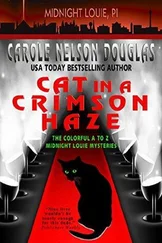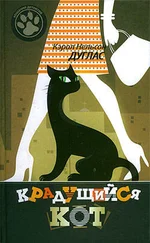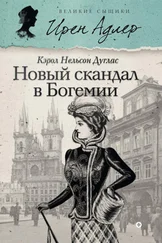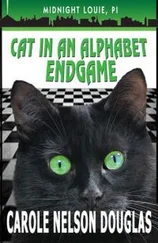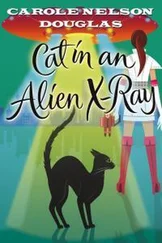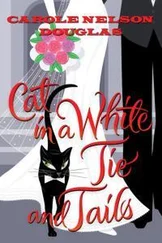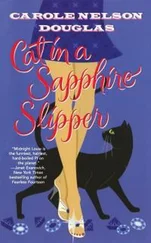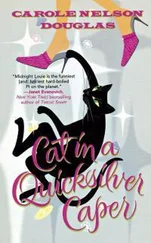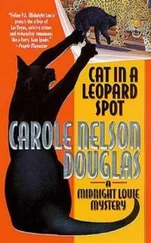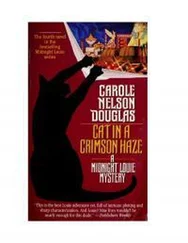“I hate this,” Temple gritted between her teeth just before the nurse bearing a clipboard led her into an examining room.
“Come along, hon.” The nurse was a chubby, cheerful soul with bright blond hair cut into a modified punk crew cut, plus the obligatory rattail trailing down her broad, white-covered back.
She took Temple’s blood pressure and wrote it on the clipboard. She handed her a hospital smock. “Just undress from the waist up. Opens in the back.” The nurse was almost out the door when Temple remembered an embarrassing fact.
“Uh, wait! You’ll have to unhook me. My arm won’t go back.”
“Sure thing,” the nurse said. “Should have remembered. You said your shoulder was really wracked up. Terrible what happens.” And she glanced at Temple from under blue-shadowed lids, her eyes holding a puzzling trace of blame.
Tied by the nurse into the limp cotton smock and finally left to herself, sitting on the sanitary paper liner accorded each of the sequence of patients, her feet swinging free at the end of the examining table, Temple felt sore and tired and helpless.
She had a while to wait for that feeling to end. The doctor didn’t come in for twelve minutes. Now he carried her life data on a clipboard. He was an Indian man with skin the color of brown shoe polish, blue-black hair and fine features. Like many professionally trained natives of that land, he radiated a benign good cheer reminiscent of Gandhi. Dr. Rasti.
“Shoulder, arm, jaw and midsection.” He enumerated her injury zones in a pleasant singsong. “You are an unfortunate young lady. Let us see.”
Away went the charade of the hospital gown as he drew it back in stages to poke and prod and examine.
“Muggers, you say?”
Temple nodded. She had wanted to write “car accident,” but then the police might want to know why it hadn’t been reported. Besides, her injuries were not consistent with a close encounter with a dashboard, even she knew that. Dr. Rasti scribbled a long entry between the fine lines of her clipboard sheet.
His verbal diagnosis mirrored Matt’s: no serious— seerius , he chirped like a friendly bird—damage, only bruises and contusions. No X-rays needed. Ice packs. Rest. A prescription for painkillers. Call your own physician if any symptoms persist unreasonably.
“As for here”—his hands thumped his white coat, his own chest—“perhaps bad bruises, discomfort. Will be fine.” Then he frowned at the clipboard. “Muggers very bad. More than one?”
Temple nodded.
“Two? Big men, bad men?”
Temple nodded.
Dr. Rasti shook his head and regarded her narrowly. “Very bad. I will have nurse step in. Little more business needed.”
Temple sighed when he left and started to pull her bra on. The nurse rustled through the door, hooked the back and helped her pull her loose top over her head.
The nurse held the clipboard, gave Temple a prescription, and finally flourished a brochure.
“Now, Miss Barr.” She licked her lips. “Dr. Rasti is very worried. Your injuries...well, they are most unusual for a mugging. Usually scraped knees, a fractured elbow. Your injuries are the result of punches. I have a brochure from the Women’s Shelter—”
“No. It wasn’t a battering.”
“Sometimes it’s not easy to tell the difference. Sometimes it’s hard to say. Please, just check out the Women’s Shelter. You can call this number anytime, you don’t have to leave your name. Talk to them.”
“Thanks, but I don’t need to. I’m not a victim of abuse.”
“Nobody likes to think of themselves that way, but sometimes, when we love someone, it’s hard to be objective. We know they don’t mean it. We know they say they’re sorry—and they are—but they can’t guarantee they won’t be that way again. And again. It’s a cycle. You have to take some action to stop it.”
“I tell you, there’s no need! All right, I’ll take your brochure. But I think it’s a free country and I can go now.”
“Maybe I can help,” came a voice from the hall.
A voice Temple knew well. She could have died.
Lieutenant Molina walked in, her professional face on. The moment she saw Temple, the self-possessed expression melted as Temple had never had the satisfaction of seeing before. All that taut confidence grew slack and confused for an instant.
The two women stared at each other in individual stupefaction. Molina recovered first, but she was on her feet and she wasn’t half-dressed.
“I’ll handle this,” Molina told the nurse, in control again.
“Thanks, Lieutenant.” The nurse vamoosed, brochure and all, but Molina held out her hand wordlessly for the clipboard. And got it. Now Molina was in full possession of all the facts of Temple’s life. She loved it, Temple thought savagely.
“I can see,” Temple said, fuming, “why poor people hate coming to emergency rooms, if they’re going to be harassed as well as treated.”
“Spotting battering cases is important.” Molina scanned the bottom of the clipboard, her heavy eyebrows lifting once or twice. She looked up at Temple. “You took quite a beating.”
“Yes, I did, and I don’t need a verbal one now.”
“The doctor and nurse did what they’re supposed to. Any trained medical or police personnel would recognize that you were the recipient of a deliberate beating.”
“Recipient. What a nice, bureaucratic way of putting it.”
“Calm down. I know you’re tough. I know you’re stubborn. You don’t have to pretend to be stronger than you are.”
“Yes, I do, because I’m not six-blooming-feet tall and I don’t get to carry a badge and a gun!”
Molina froze. She shrugged and backed up. Then she did something amazing. She stepped out of her low-heeled shoes and dropped an inch or so. “That better?”
Temple’s righteous rage huffed and puffed and had nowhere to go. “Some. Listen. If I had been a victim of abuse, I’d be the first to cry ‘Wolf!’ Honest. These were strangers.”
“Muggers hit and hurt on the run. They don’t hang around for the fun of it.”
“Maybe these were sadistic muggers.”
“I don’t buy that. Who is this Devine guy?”
“I told you. A neighbor. What a world if he takes me to the emergency room—and if he hadn’t insisted, I wouldn’t have come—and ends up getting accused of being an abuser! So much for the survival chances of good Samaritans.”
“We have to ask these questions,” Molina said patiently. “Doctors, nurses and police personnel haven’t done it enough in the past, so women and children have paid for it. Did you know that one-third of the women who come into an emergency room are victims of abuse?”
Statistics hit home when argument would not. “No, I didn’t know. That many?”
“And those are just the ones who come in. That doesn’t count the tough customers like you who refuse to go.”
“Ouch. Okay, I can see why you have to ask. But you have to listen, too. And intimate abuse is not my problem, believe me.”
“So many deny,” Molina said, then raised her hand as Temple bridled again. “Still, your story doesn’t wash.”
“Maybe because it’s not the whole story.”
Molina leaned against the wall. “Tell me.”
So Temple did, hating it, but hating being thought an abusee worse. Molina listened, but her face never reflected her thoughts.
“You could identify the men?” she asked at last.
“I like to think so, but when you’re in the middle of a thing like that, it’s hard to look for identifying moles.”
“We need you to look at some mug shots. Maybe tomorrow after you get some sleep.”
“Okay.”
“And they wanted to know Max Kinsella’s whereabouts?”
Читать дальше

